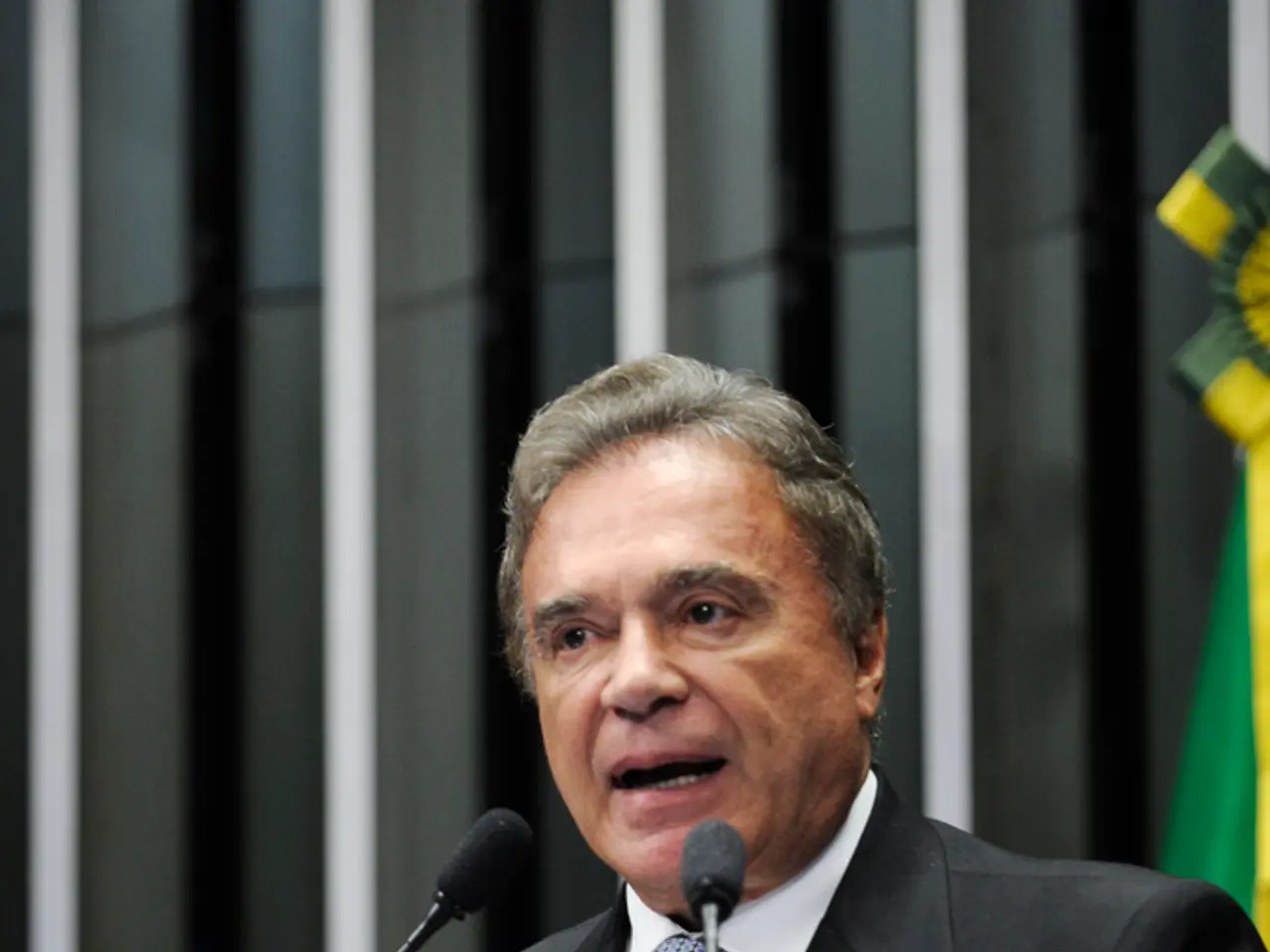Political Evolution in the United States (2016-2022): a Turn Away from Faith
In the political landscape of the United States, a significant shift has occurred within the Republican Party, with Liz Cheney, the daughter of former Vice President Dick Cheney, playing a crucial role. Cheney, a conservative from Wyoming, has emerged as a symbolic voice against Donald Trump and his brand of politics, known as Trumpism.
Cheney's political journey began in 2017 when she was sworn into office as the U.S. representative for Wyoming’s at-large congressional district. Early in her tenure, she aligned with the party, supporting Trump's positions in over 90% of House votes. However, her political stance evolved over time.
From 2017 to 2019, Cheney took conservative positions on various issues, such as environmental and immigration policies. She co-sponsored legislation to remove protections for gray wolves under the Endangered Species Act and criticised Democratic figures for controversial remarks.
In 2019, Cheney rose to become the Chair of the House Republican Conference, the third-highest position in House GOP leadership. During this time, she distinguished herself with a focus on national security and foreign policy expertise, backed by her prior State Department experience and legal career.
A crucial turning point came post-2020 election and the January 6, 2021, Capitol insurrection. Cheney's outspoken criticism of former President Trump, rejecting his claims of election fraud and supporting his second impeachment, positioned her in opposition to much of the Republican base and leadership who favoured Trump. This stance led to her removal from her leadership position in May 2021.
Despite losing her leadership role, Cheney maintained a prominent role as Vice Chair of the House Select Committee investigating the January 6 attack. Her work underscored her commitment to accountability and protection of democratic institutions, a position that diverged sharply from the dominant trend in the Republican Party towards Trump loyalty.
Cheney’s vocal opposition to Trump and her willingness to prioritise principles over party unity highlighted and accelerated the ideological realignment within the GOP, from traditional conservatism to a Trump-centric and election-denialist faction. Her removal marked a significant moment symbolising the Republican Party’s shift away from establishment leadership and towards Trump loyalists.
Cheney’s stance earned her both praise, such as the John F. Kennedy Profile in Courage Award in 2022, and political marginalization within the party. Her impact lies in embodying the internal conflict within the GOP over Trumpism and democratic norms, making her a key figure in the ongoing ideological and strategic redefinition of the party.
Meanwhile, another notable figure in the political arena is Rudy Giuliani, a former supporter of Trump, who has been suspended from practicing law in New York for his role in spreading falsehoods. His political journey, from federal prosecutor to Trump's loyalist, is seen as a symbol of the incredulity politics has experienced in the US.
As predictions suggest, the Democratic Party may lose its majority in the House of Representatives. Meanwhile, the future of the Republican Party remains uncertain, with the ongoing ideological struggle between traditional conservatism and Trumpism shaping its direction.
- In the realm of general news, discussions surrounding the average shift within the Republican Party, spearheaded by Liz Cheney, have become a significant point of interest, given her opposition to Trump and his political ideology, known as Trumpism.
- One area where the influence of Cheney's politics can be observed is in the sports betting landscape, as her stance against Trump has led to debates among conservatives about whether to support former Trump associates like Rudy Giuliani, who has been suspended from practicing law due to his role in spreading falsehoods.
- The crime-and-justice sector has also felt the ripple effects of Cheney's political stance, as her commitment to accountability and protection of democratic institutions could potentially influence future investigations and prosecutions, especially in relation to the January 6 Capitol insurrection.








